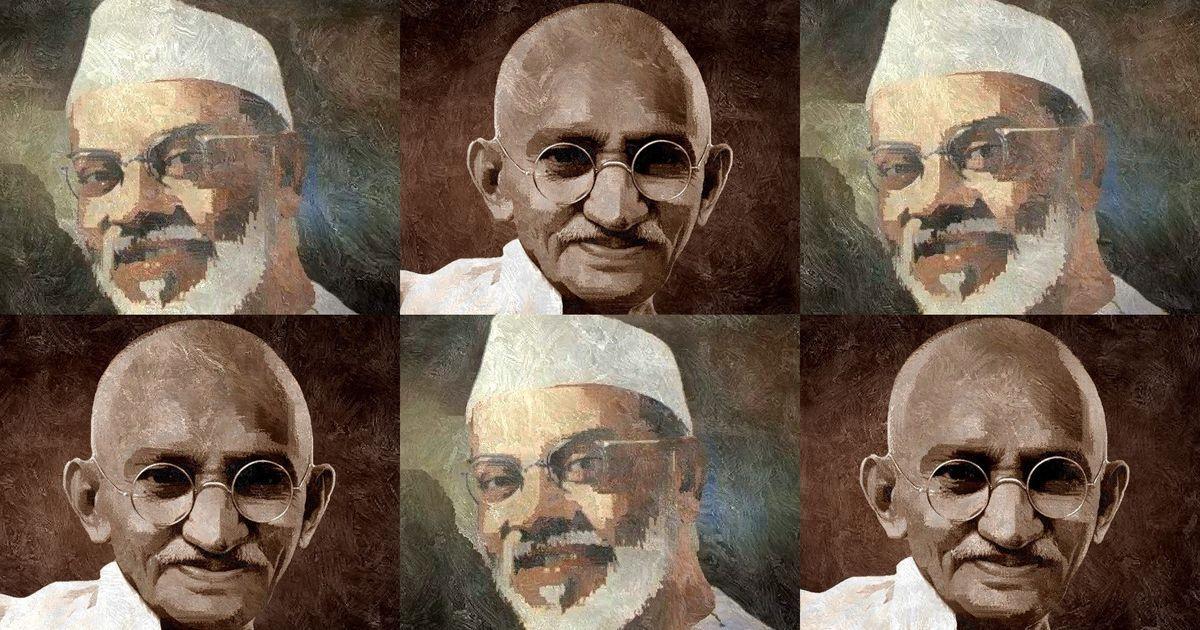Villagism – Economic reconstruction of Bhaarat – The goal of an economy is spiritual
Posted by anhad on May 8, 2025

Villagism : Economic reconstruction of Bhaarat so that Bhaarat again becomes सोने की चिड़िया or Golden bird as it was before 18th century
A passage/excerpt from the book ‘Capitalism, Socialism or Villagism ?’ by Bharatan Kumarappa and Mahatma Gandhi
Main Intent of this book –
- This book provides a subjective study of the economic policies of the various types of work industries operating in India along with their reality : Capitalism, Socialism
- This article proposes a new economic order named as ‘Villagism’, as suggested by Bharatan Kumarappa in his book written in 1946. This economic order can be adopted for villages as well as cities of India. This book was published by Sarva Sewa Sangh Prakashan, Varanasi.
- This book stands more relevant today because both Capitalism and Socialism in the accepted sense have been tried in some measure both at home and abroad and have been found wanting. They have not only been able to deliver goods anywhere but have also brought humanity to the brink of self-annihlation.
- Achieve Economic sustainability of India and well being of people of India by applying the economic system of Villagism.
Capitalism and its Evils :

Graphics of Earth covered with currency notes
An economic arrangement where production and distribution of goods is carried on by individuals or groups of individuals who use their stock of accumulated wealth for making more wealth for themselves. Three things are therefore essential for Capitalism – private capital, centralized large scale production and private profit. Capitalism leads to over-production, unequal distribution of economic wealth, unemployment, war and bloodshed.
Socialism : Essence, its Advantages and its Evils :
The foremost among Revolutionary Socialists and one who contributed most to organize this movement and give its theories scientific and philosophical backing, was a Jew called Karl Marx (1818-1883). He was a student of philosophy, history and law and took to journalism. His newspaper brought him into conflict with the State and he therefore went to Paris where he read much Socialist literature and became converted to Socialism.
Marx was one of the first to bring a strictly scientific mind to bear on human history, and from an objective dispassionate study of history of peoples to deduce certain principles according to which a man’s life is determined from age to age. According to him, if we would help mankind forward, we should first understand the laws according to which human society lives and evolves, and then putting ourselves in line with the movement of Nature we can go forward with all the strength of the Universe behind us as our goal. This attempt as non-metaphysical, scientific study of history and human institutions is in itself a tremendous contribution which Marx has made and which has affected the thought of thousands of people since his day. Owing to this scientific backing which Marx gave the socialist creed, his views have merited the name of Scientific Socialism.
Influenced by the great philosopher Hegel, Marx tended to reduce Human history, past, present and future to a strict logical sequence, characterised by all the inevitability of scientific necessity.
Villagism :
Villagism stands for the movement of Khadi (handspun, hand woven cloth) and village industries.
In contrast to Capitalism which centres around capital (money) and Socialism around society and its needs, this movement centres round the village and its welfare.
It seeks to build the economic life of the country by developing strong, self-reliant village units, the members of which will be bound togeheter by mutual obligations and
will cooperate with each other to make the unit prosperous and self-sufficient for all their essential needs. I have for the sake convenience spoken of the unit
under this new economy as the village. But this is not to be understood too literally. The unit may be, if necessary, even a group of adjacent villages.
If Socialism seeks for the prosperity of a whole nation in the mass, Villagism aims at the development of the smallest village and through it at the development of
every member of it. even the very lowest and the least. If tendency under Capitalism and Socialism is towards greater and greater centralisation, this village movement
distinguishes itself by looking to decentrlisation as the chief means of developing the individual. It was therefor necessary to mention about Capitalism and Socialism
in order to show why this new economy is being prosposed as against them.
- Introductory : What is the Goal of the economy in Villagism : Human Well-Being as goal. The goal of such an economy is spiritual, the goodness or badness of an economic system being tested, not by the amount of
material wealth it brings, but by whether it promotes the greatest amount of non-violence i.e self-development, cooperation, unselfishness and brotherliness amongst men and women working in shops, manufacturing factories, government services, army and police, softwares, hair salons, sweepers and garbage pickers etc.
Employers should not make their employees over-work so that their health is not badly affected.
~~~~~~~~~~~~~~~~~~~~~~~~~~~~~~~~~~~~~~~~~~~~~~~~~~~~~~~~~~~~
Brain-Drain of Youth of India:
Brain drain is a large immigration of individuals with technical skills or knowledge from developing nations to developed nations (they became developed after invading and stealing from developing nations). Other than immigration, working for foreign companies that have a work policy based on Capitalism is also a new form of Brain Drain.
Brain drain is usually regarded as an economic loss, since immigrants usually take with them the whole value of their education cost to another nation by serving a foreign Government. Brain drain can be stopped by implementing the economic system of Villagism which can provide Youth who have expertise in their field with career opportunities or encourage them to set up small scale businesses in India.
Lets understand the reasons for Brain Drain of our Youth :
Grass always looks more greener on the other side. The mindset of majority of people is that living in a developed nation is considered more valuable as an achievement. They get lured by the artificial standard of living there which offers comforts of life. They choose the lucrative technical jobs opportunities, physical labour work opportunities or setting up of business there.
People around the world have blindly believed that whats good for England, Germany and Italy is also good for the whole world. This is somewhat surprising because all through history societies have created their own ways and carved out their own identities often struggling through internal and external strifes, through collective conscious introspection and innovation. But within a matter of five to eight decades we have been persuaded into thinking that we should “develop” and “modernise” more or less in the same way-in form and content as these three nations, the voices of dissent notwithstanding. So, we have had and continue to have “development projects”, by which we have imported on a massive scale technologies and institutions and values. In the process, indigenous technologies and institutions, norms and cultural values which have been developed through centuries to suit our requirements have been dumped into the garbage bins of history.
~~~~~~~~~~~~~~~~~~~~~~~~~~~~~~~
News article on the topic :
Defying capitalism and socialism, Kumarappa and Gandhi had imagined a decentralised Indian economy in 1930’s Bhaarat :
https://scroll.in/article/826426/defying-capitalism-and-socialism-kumarappa-and-gandhi-had-imagined-a-decentralised-indian-economy
~~~~~~~~~~~~~~~~~~~~~~~~~~~~~~~~
For reading this complete book, you can purchase this book from Gandhi Bhawan, Rajghat, Delhi. Please click on website of Gandhi Bhawan below to purchase this book :
http://www.gandhismriti.gov.in/
Web-address for buying printed books from Sarva Sewa Sangh, Varanasi :
~~~~~~~~~~~~~~~~~~~~~~~~~~~~~~~~~~~~~~~~~
Request for subscription to mailing list of Anhad Foundation :
If you want to receive details of Research Blogs, Book launches, Shop section and Event updates of Anhad Foundation by email, please send this email to kuberkapoor@inventati.org.
“My name is ABCD. I want to subscribe to mailing list of Anhad Foundation”
Thank you for reading
Kuber
Filed under General
